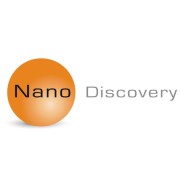Researchers Use Gold Particles to Detect Cancer; Set to Present at Global Conference
A Florida nanotechnology company is working to make its procedure the gold standard for early cancer detection.
Nano Discovery, Inc. is developing a process using gold nanoparticles that can help detect abnormal immune activities in the body – often telltale signs of cancer. This cancer test, which involves only $1 worth of gold particles and a single drop of blood, promises to be far more accurate, for example, than the prostate-specific antigen blood test doctors currently use to detect prostate cancer.
“We believe this technology could lead to a universal screening test for early cancer detection,” says Qun “Treen” Huo, Ph.D., CEO of Nano Discovery, who will showcase the company’s blood test for early detection of cancer and autoimmune diseases before an audience of potential investors and licensing partners at the TechConnect World Innovation Summit in June in Washington, D.C. “It’s exciting to be developing innovative, biomedical research tools that potentially will save lives, ” says Dr. Huo.
The TechConnect 2015 Innovation Summit is designed to showcase new, promising technologies in order to create opportunities for them to receive funding and commercial support. Nano Discovery’s presenter status as a 2015 TechConnect Innovation Award winner puts them in a distinguished class: of all those who apply to present at the event, only 20 percent are selected. Among the participants are universities, innovators, labs and leading research organizations. Nano Discovery is leveraging this opportunity as the company is seeking additional funding to further test its process, as well as partners to commercialize the procedure.
A client company of the UCF Business Incubation Program (UCFBIP), Nano Discovery develops biomedical research products and medical diagnostics through advanced nanotechnology. The company operates at UCFBIP’s Central Florida Research Park location near UCF’s main campus.
“Our goal is to create a simple, easy, low-cost test to accurately detect cancer at its earliest stage,” says Dr. Huo, who also serves as an associate professor at the UCF NanoScience Technology Center. “It has been a significant benefit to receive the level of strategic guidance and business support provided by the [UCFBIP].”
The Nano Discovery team is able to detect the antibodies that are attacking tumors as they attach themselves to the gold nanoparticles. This technology employs optical probes that use dynamic light technology to detect the activity.
Although the gold nanotechnology is unable to specify the type of cancer a person may have, the procedure may be an important means of screening for the disease in the future. For many cancers, early detection is absolutely essential, meaning the difference between death and survival.
Dr. Huo says that the team has studied the effects of the nanoparticles on animals and on human blood, and is conducting further research to validate the procedure’s efficacy.
“It is a very great honor to be selected as a participant in this important event,” Dr. Huo says. “This conference will create more visibility for the work we have been doing, and we’re hopeful it will bring this technology a step closer to becoming a standard diagnostic tool in a few years.”
For more information, visit NanoDiscoveryinc.com.






